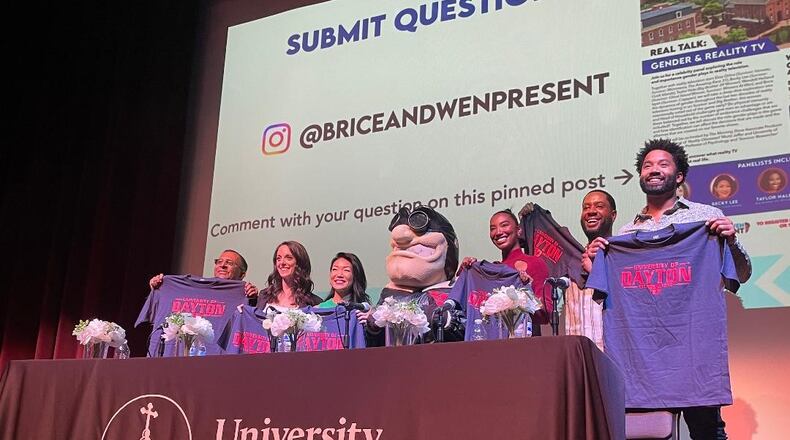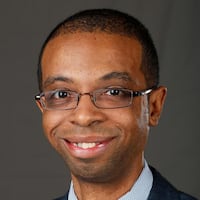“If you look at the number of votes men and women get when they’re sitting together in the finals, women overall get fewer votes,” said Kunz. “When women win, men typically get some votes. But when men win, women often get zero. We found this pattern to be pretty consistent.”
The informative, personable panel consisted of: Taylor Hale, the first Black woman to win a regular season of “Big Brother”; Wendell Holland, winner of “Survivor: Ghost Island” who also appeared in “Survivor: Winners at War”; Eliza Orlins of “Survivor: Vanuatu,” “Survivor: Micronesia” and “The Amazing Race 31″; Becky Lee of ”Survivor: Cook Islands”; and Brice Izyah of “Survivor: Cagayan.”
Credit: Russell Florence
Credit: Russell Florence
Hale’s incredibly complex journey last season was one of the most compelling, heartbreaking, suspenseful and joyous in “Big Brother” history. Immediately upon entering the house, she was excluded by the females even though she dreamed of starting an all-female alliance. Still, in spite of tremendous adversity, she was able to prove her value by winning physical and mental competitions, particularly the extremely challenging, battle-of-endurance Head of Household competition known as The Wall.
“There are ways in which our society takes insecurities that women have within themselves and use them to pit us against each other,” said Hale, a former Miss Michigan USA. “I know that my confidence can feel like a weapon or it can inspire insecurity in other people, but I do my best to make my confidence inspire confidence in other people. But when you’re in an environment of ‘Big Brother’ people are going to assume the negative and run with it because there is incentive to do so.”
Hale considered herself “a very competitive, well-rounded player,” but was frustrated by the lack of support from her fellow houseguests, especially in the early days of the season. However, in recognizing the important delicacy of jury management, she felt confident enough to rely on telling her personal journey in her final speech.
“Strong men will have a men’s alliance to protect each other and have the respect of winning competitions under them and then winning. There’s no real road to the end outside of just being in the house winning competitions and evicting people,” she said. “I remember feeling so devasted when I lost Part 2 of the final Head of Household competition because it meant so much to me to be a woman that could have been in a position to take myself to the final two seats. And when I lost, I was leaving my destiny into the social game, which is what women have to play more than men. But it gave me the opportunity to sit by myself and think about what I wanted my final speech to be,” she said.
“I thought what is the value in telling the story of the journey of playing ‘Big Brother?’ Do I think that telling a story is as valuable in shorter games? Maybe not so much. But when you have an up to 90-day game, I think it’s easier to argue for the legitimacy of playing a long-term social/strategic game,” Hale said.
Credit: Russell Florence
Credit: Russell Florence
In addition, Orlins noted the physical challenges on “Survivor” and “The Amazing Race” favored men.
“The challenges on ‘Amazing Race’ are certainly geared toward men — the entire show is — but ‘Survivor’ is often that way too,” said Orlins. “And even if the challenges are not geared toward men, (women) are perceived as weak.”
The forum, officially known as Brice & Wen Present: Real Talk Panel Series, launched in Toronto in February with “Race & Reality TV” followed by “Mental Health & Reality TV” in New York in May and “Player vs Character” in Toronto in September. The Dayton engagement marked the forum’s American collegiate debut.
“We would like to continue doing this,” said Holland. “We want to go to more universities. We want to come back here and talk about more topics and bring people together. We’re all connected based on reality TV and a lot of people experience things on these shows that we see people experience in real life whether it’s in schools, neighborhood or at the workplace. These topics are not necessarily the easiest, but if you talk about these things, things can change. If you get uncomfortable, things can change.”
Credit: Russell Florence
Credit: Russell Florence
About the Author




